The Valencian musician Alberto Montero releases his seventh album (‘Ciudad dormida’ ) through BCore records. It is a journey through the streets of his subconscious in search of understanding the mystery of life and the creative process too. Returning to the path of intimate and emotional singer-songwriter folk music, Alberto Montero presents to us a songbook that tends towards the ethereal and allows us to understand some of the elements that make up his identity, not only artistically but also personally. He will present the album live on Saturday 30 November at the Sala Russafa in Valencia and on Thursday 19 December at the Sala Heliogàbal in Barcelona, with tickets already on sale.
Any of the things we think, feel, suffer or believe in life actually come from an abstract and completely subjective place that inhabits us: our subconscious. As if it were an iceberg, our reality is divided into two parts: the emerged, active and recognisable to everyone; and the submerged, hidden and much more extensive and influential than it seems. This second part, often intangible and indecipherable, makes us who we are and what we do; and it is precisely the object of artistic study on which Alberto Montero has focused Ciudad dormida, his seventh album.
Presented as an invitation to travel the streets of the musician’s subconscious, the new work by the Valencian artist crosses the frontiers between the visible and the invisible, leaving us with pieces that straddle the two worlds. Thus, returning to the path of the most intimate and emotional singer-songwriter folk, and thus connecting with his early work, Alberto Montero presents a songbook that tends towards the ethereal and allows us to understand some of the elements that make up his identity, not only artistically but also personally. Some of the main ones, in fact, unify the artist and the person: they are the search for his essence and the understanding of the mystery of life and the compositional process too.
In this search, to overcome and reflect on the creative crisis that plagues him between records, Montero retired to a cabin near Yeste, a small town in the La Mancha region of Sierra de Segura, in Albacete, where he gave birth to several of the pieces that open Ciudad dormida. The opening ‘La posibilidad’, in which he asks himself whether it is really possible that he will never write anything good again; ‘Otro amanecer’, which has an air of Arthur Lee’s Love about it, with which he tries to make his chords match the grandeur of nature.
‘Castles in the air’, reflecting the musician’s commendable will to reconnect with himself; the title track ‘Ciudad dormida’, whose sonority takes us to a fully dreamlike space; and ‘Como siempre’, which talks about separating daily suffering from the contemplation of the present moment, in this case nature. Always regarding the compositional process but on a more earthly level, ‘Dejemos todo atrás “ works as a reminder that crises pass, while ‘La incomodidad’ reflects what it means to expose yourself to the world and how it creates an image of you knowing you only through your songs. Both, by the way, with an instrumental and melodic feel that may remind us of Grizzly Bear.
Also in the same line of tangible discourse, ‘Otra vez’, uniting form and content, works as an instruction manual for coping with frustration with the message: “If you have to try again, try again”. ‘La Obligación’, with its baroque melody, warns us that sometimes what we love becomes an obligation that serves to maintain our identity, turning creation into a double-edged sword that feeds and is fed by our vanity and self-esteem.
Without abandoning the subconscious as the main scenario, Alberto Montero tackles other deep themes such as his admiration for nature, present in the advance single ‘Nube violeta ’, which he sings together with the Peruvian duo Alejandro and María Laura; the traps of immediate pleasure as opposed to those that fill us up and really connect us with ourselves in ‘El corazón de la flor de hielo’, with a Stereolab influence.
‘La Campana’ is based on a tale by Hans Christian Andersen and written for his wife when he was going through a bad time, recognising that trying to discover the mystery of life and its meaning in itself; and ‘Cae la noche’, with a romantic touch a la Lucio Battisti, which closes the circle of an album that opens with a dawn, also symbolising the overcoming and the end of a creative crisis that has resulted in no less than 15 songs. This is unequivocal proof that our subconscious contains more of ourselves than our conscious part.
ALBERTO MONTERO (INTERVIEW ‘24/7 VALENCIA’)
24/7 VALENCIA: Can you tell us something about your training, education and musical career?
ALBERTO MONTERO: When I was 8 years old my parents signed me up for music, but the Spanish education system was very boring in the 1980s. First you had to do a preparatory course, a whole year of ‘solfège’. The following year you started the first year, and you didn’t pick up your instrument until the second year. It was an eternity for a child. So, I gave it up after that preparatory year. I learnt to play the basic chords on the guitar in my neighbourhood parish, where they gave free lessons. That was when I was about 12 years old. When I was 17 I wanted to learn a bit more and I spent a year going to an academy where they taught me scales and so on. At the age of 24, I signed up for piano lessons at the musical society of my town, where I spent 4 years, until I had to go to Barcelona for work reasons. During those 4 years, I was also singing in the choir of the same musical society.
What are the differences between Barcelona and Valencia for a musician? In Barcelona, what you do always has more repercussions. There you have the main independent music media, the best festivals and independent music scene with many like-minded bands. Despite the fact that Valencia is a city with a lot of activity and a lot of interesting bands, you suffer that invisible border with Madrid and Barcelona on one side… and then the rest of the Spanish major cities on the other side, on the outside ‘looking in’ as it were. I think that a large part of the repercussion that my music has had, nationally, is due to having lived in Barcelona for 10 years.
Please could you tell us more about your influences? The Beatles, Love, Lucio Battisti, Leonard Cohen, Elliott Smith…My main influences started when I was 15, when I became obsessed with Oasis and Britpop. This opened the door for me to get to know The Beatles and the music of the 60s and 70s. Among all the music I got to know, ‘Love’ and Neil Young became pillars of the music that I started to make. Then came the folk-fever, which was when I made my first record, and that’s when I started listening to artists like artists like Nick Drake, Comus, Elliott Smith and Leonard Cohen. While I was studying piano, I became interested in classical music, and I immersed myself in Mozart, Bach, Brahms, the impressionists like Satie, Debussy, Ravel. I was also fascinated by early and renaissance music like Palestrina or T.L. de Victoria. Lucio Battisti was a late revelation, a couple of years ago more or less, thanks to my friend Gonzalo Fuster.
What is the concept of your new album, ‘Ciudad dormida? There is no clear concept, I didn’t write it under any premise. When I have all the songs compiled, I like to analyse them from the outside and then realise that many of them actually are connected. I think the common thread of this album could be the constant search for beauty through the creative process, the fear of never finding the access to that essence again, and in general, the expression of my fears and vulnerabilities. All treated from the analysis of the subconscious and the dream world.
Can you tell us something about each theme?
La posibilidad: The fear of never writing a good song ever again. A short track with a very baroque beginning too
Otro amanacer: A song musically very influenced by the legendary album ‘Forever Changes’ by Love, where I talk about the contemplation of nature. In this case, I talk about a sunrise, and how magical and miraculous it is. Really, it is much more awe-inspiring than any song or work of art.
Castillos en el aire: Here I ask myself whether it’s worth continuing and going round and round in the ‘wheel’ of composition, recording, promotion, concerts, when it seems I’ve reached a ceiling that I can’t break, I’m getting older and I find myself more and more lost in this world.
Ciudad dormida: The most psychoanalytical song on the album, where I talk about my subconscious as if it were a city.
Como siempre: Despite my fears and traumas, I find refuge in my family.
Dejemos todos atrás: Here I talk a bit about the same as in the first one, but giving myself encouragement and assuring myself that everything is going to be well.
La incomodidad: Like the previous one, it was one of the first ones I did for the new album, so I’m also talking about the fear of not finding inspiration again. But also about the image you project of yourself with your lyrics and music.
Nube Violeta( con Alejandro Maria Laura): The most experimental song of the album, accompanied by the marvellous voices of Alejandro and María Laura, a Peruvian duo that enjoys a lot of recognition in Latin America, and who now live in Valencia too.
Otra Vez: When things don’t work out, don’t give up and you have to try again. Each repetition of the verse has a different production, symbolising that if things don’t work out for you, you can change the way you do it to get the result you want.
El corazón de la flore de hielo: We live in an age with a perpetual attention deficit, due to the slavery to which we are subjected by the constant stimuli of our mobile phones. This leads to a sense of dissatisfaction that often leads to sadness or depression.
Nube violeta reprise: This is the initial version of ‘Nube Violeta’, as I started to write it, and I wanted to leave a record of it on the record by doing this very phantasmagoric version.
La obligación: Sometimes what you love the most becomes an obligation, because part of your identity or even your social status is based on your role as a musician.
Tengo que empezar: Another psychoanalytical track. I’m talking about expressing everything that goes through my head in order to know myself better and discover what moves me, what motivates me and what makes me sad.
La campana: It is based on a Hans Christian Andersen’s fairy tale. It is about the search for the mystery of life and overcoming difficult moments.
Cae la noche: It speaks of the night as the moment when all the inner monsters appear. The song and the album ends as it began, with a dawn that symbolizes the return to normality, to tranquility infact. The symbolism is that after the storm, always comes the calm. Every day the sun rises again. Or, as Jaume Sisa sang, any night the sun can rise.
What can we expect from your show in Valencia? Emotion and beauty too. We’re going to try to reproduce the songs with all the arrangements of the record, as much as possible…
Report and interview by Will McCarthy
Article copyright ‘24/7 Valencia’
ALBERTO Montero presents his new album, ‘Ciudad dormida’
30 November
20.30h
Sala Russafa
C/ Denia, 55
46006
Valencia
Tel: 963 10 74 88
TICKETS: https://www.salarussafa.es/espectaculo/1/concierto-alberto-montero.html
RESERVE YOUR VINYL COPY NOW:
https://bcstore.bcoredisc.com/shop/bcore/alberto-montero/vinyl/ciudad-dormida/
Related Post
This site uses Akismet to reduce spam. Learn how your comment data is processed.


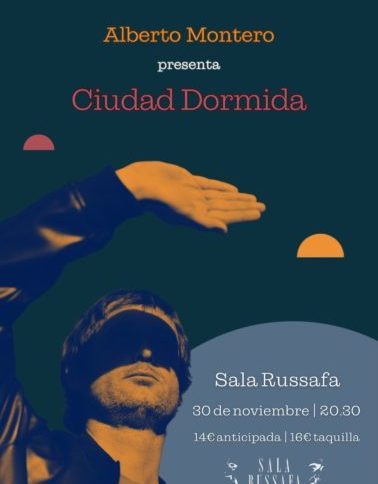
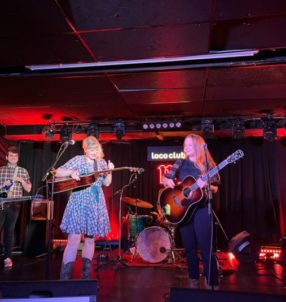
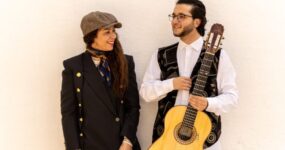
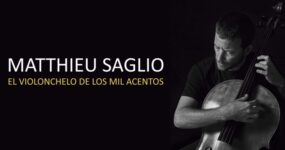
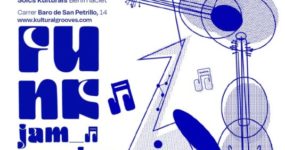
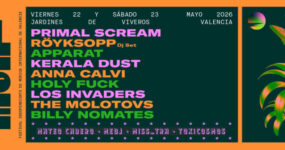


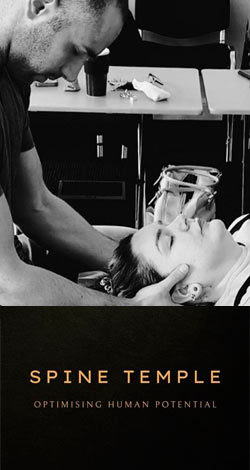















Leave a comment